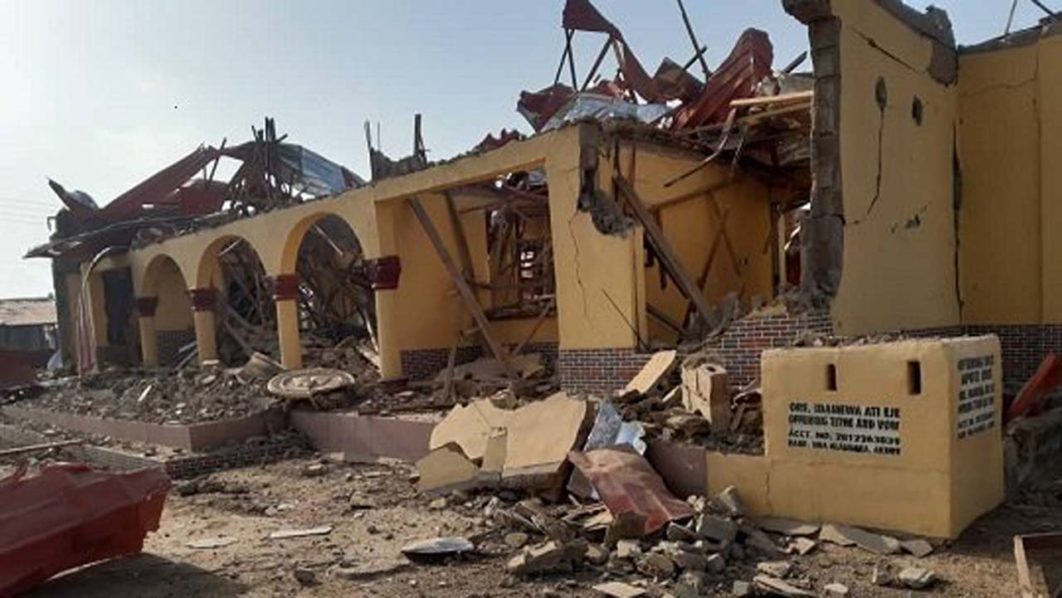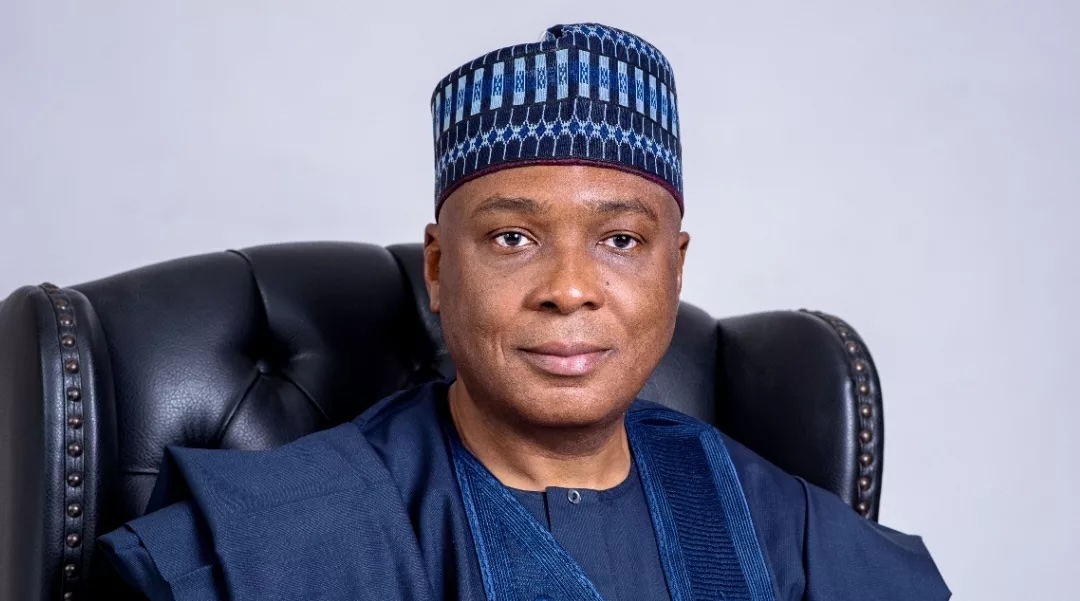
The blast, which occurred in the early hours of Saturday cut off the ever-busy Akure /Owo Road and left not less than 70 structures destroyed while many people were said to be injured. Indeed, eminent Nigerians have called for concerted efforts to curb growing insecurity in Southwest, with a view to avoiding replication of what is currently ongoing in the Northeast region. Many have repeatedly warned that activities of insurgency in the north have the potential to spread to other parts of the country.
Akeredolu had, in his explanation, said a vehicle moving improvised explosive devices to a nearby state caused the explosion. The governor, who inspected the scene of the explosion, immediately said he was briefed by security chiefs that the vehicle was in a convoy heading to a storage facility in a neighbouring state when it broke down along the Akure-Owo Road, some 2km to the Akure Airport. He noted that the unfortunate incidence happened in the process of fixing the vehicle.
But skeptics took the governor’s prompt explanation with a pinch of salt, comparing it to the recent explosion that occurred at Abule-Ado in Lagos State a fortnight ago, which also left several buildings shattered with many causalities. The worrying aspect of the Lagos disaster was the conflicting reasons advanced by the authorities for the cause of the explosion. The two bomb disasters are also compared with the earlier bomb blast in Okesha area of Ado-Ekiti, Ekiti State, close to Governor Kayode Fayemi’s office.
The Ekiti blast was said to have brought down a building around the area and that it also affected a section of the state’s ministry of chieftaincy affairs. The explosion also damaged parts of the ministry of finance, and other buildings on the premises without a soul lost. The blast in Ekiti was blamed on human error and till date nothing has been said about it again.
Meanwhile, many questions are being asked as to why explosions are suddenly becoming the order of the day in major parts of Southwest states that recently launched its separate security outfit codenamed: Operation Amotekun, which aims to tame the rising spate of insecurity and the excesses of armed herdsmen and kidnappers across the Southwest.
Interestingly, the question rages: did the explosions that occurred in Ondo and Ekiti States, whose governors – Fayemi and Akeredolu – spearheaded the Amotekun project while Lagos State, which is considered the financial backbone of the outfit, have these states as targets? While these questions are waiting for answers, there are outcries for a judicial commission of enquiry to be set up to unravel these incidences.
In his reaction, Alhaji Lateef Femi Okunnu, who also served as a Federal Commissioner for Works and Housing during the regime of former military Head of State, Gen. Yakubu Gowon (rtd), urged for a commission of enquiry to ascertain the real causes of the Abule-Ado disaster.
“It is for the state government to set up a judicial commission of enquiry into the cause, so as to put an end to all speculations and hopefully there will be an end to these explosions. Whether it was caused by those who want to steal oil or bomb or whatever, to me, it is necessary that the state government should set up a commission of enquiry.”
Some observes have, however, expressed fears that leaving the series of explosions unattended to by both the Federal Government and the states involved because of the focus on the rampaging COVID-19 pandemic might snowball into ethnic crisis in future based on the fact that accusing fingers are already being pointed at a section of the country trying to intimidate the Yoruba nation to back out of the Amotekun project.
Taking the lead discussion, a member, North East Development Commission, Wale Osun, warned that the insurgency currently facing the North-East zone could happen in any part of the country. He maintained that the decision of the Southwest governors to set up Operation Amotekun, a security network for the zone, was in the interest of the nation, and not to pursue any Southwest agenda.
At a training tagged: “Engaging the Media, Social, Ethnic and Community-based organisations for reconciliation and conflict prevention,” organised by Journalists for Democratic Rights (JODER) held recently in Ikeja, Lagos, resource persons spoke at the bomb menace. Oshun said the conditionality for having sustained the insurgency in the North East is premised essentially on poverty, inequity and social class distinction, which is noticeable.
Osun also noted that the unity that would work is the type that residents deliberately worked at and appreciated that it was in their interest to be united.
The former federal lawmaker, while urging stakeholders and political leaders to address issues that lead to crisis, accused past leaders of the country of having failed to invest in what would bring more happiness to the people
Speaking further, Oshun disclosed that about 283 languages are spoken in Nigeria; saying there was the need for the country to restructure, manage the diversity and the differences in languages and cultures to its advantage being the largest Blackman’s nation.
He said: “You will admit that there are difficult moments in various parts of the country and the North East is not different from the other parts of the country. It is just that insurgency has been sustained in that area. However, there are potential for it to spread to other parts of the country.
“These factors are present in almost all parts of the country today. It is just that it has boomeranged in the North East, just as it boomeranged at a time in parts of the South-South. And it is hoped that all efforts should be made to contain it so that it does not spread to all the other parts of the country.
“Nigerians have a lot of work to do. If the problem is not addressed, it will create social and economic class interest. There is a need to restructure the country. Nigerians need to look at what binds us together and take advantage of our size to usher in development. Each geo-political zone should be allowed to develop their potential. What is happening (crisis) in the North East can happen in every part of the country. We need to write a new constitution that will be acceptable to every part of the country.”
ON his part, Director-General of Dawn Commission, Mr. Seye Oyeleye, noted that the current situation in the country calls for urgent attention. He added that it was the fundamentals of the socio-contractual responsibilities of the state to its citizen and one with both casual and consequential relationship with economic growth.
“The matter of security directly or indirectly affects everybody,” he stated, “one is either a criminal or victim (of theft, burglary, fraud, assault/violence, armed robbery, kidnapping and corruption); a policeman, security personnel, justice administrator, prison warder/officer or a relation, co-worker, etc, in the drama of criminality.”
Executive Director, JODER, Wale Adeoye, hinted that the event served as a platform made up of different ethnic groups, adding that the exercise had been on for some time as the essence was to build friendship among the various ethnic groups in the country.
According to him, “We don’t want a major crisis in Nigeria; all the signals are pointing to the potential of a crisis. We have seen what is going on in other African countries; we hope that this will not happen in Nigeria. The thing to prevent that is not just to fold our hands.
“We are driven by public interest. We want people on their own to be at the driving seat of the peace process. Since the project began, less violence has been recorded in areas where we have trained ethnic and socio-political leaders.
“People are not recipients of peace and conflict prevention policies; there are also critical stakeholders that should be involved in the conception and implementation of conflict resolution programmes conceived and implemented by the government.”
Representing Ijaw World Congress (IWC), Digifa Werinipre, noted that the Fulani have been living in Elele in Port Harcourt for over 200 years without any problem, noting, “What we are seeing is violence driven by vested political interests. The people on their own should come together to stop the circle of violence. Amotetkun was not created to witch-hunt anyone. We welcome the suggestions of all nationalities in the Southwest.
“Amotekun offers security and protection for people living in the Southwest irrespective of their ethnic or religious affiliations. Nigeria is Africa’s most populous country with diverse civilizations and values. With impressive large oil and gas deposits, the country’s main export earnings, Nigeria is one of the richest countries in Africa, yet trailed by constant hostilities and potential conflict.”
Deputy President, Arewa Youth Consultative Forum, Tijani Ahmed, stated the violent herdsmen do not define the Fulani history and culture, noting that Fulani is peace-loving.
“We are ready to work with other nationalities in Nigeria for peace to reign” he asserted. “What has been absent is a people-driven initiative, which JODER has now provided. People feel more comfortable working together for peace than when sitting with the government on a peace table because the politicians define peace from the narrative of their own comfort and personal security.”






